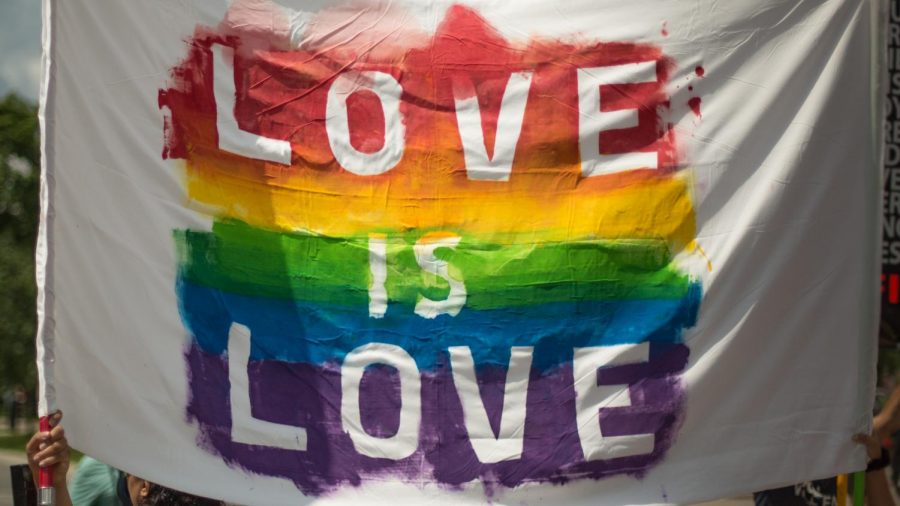LGBTQ+ History Month
Learning about the history of the LGBTQ community is important because it brings with it opportunities to understand and educate oneself on how the gay community has impacted history and how it continues to do so today.
October 25, 2021
In the month of October, there are many holidays and celebrations that take place. One of these celebrations includes LGBTQ History Month, which allows the opportunity for people to celebrate and learn the history of the LGBTQ movement and the issues the community faces.
In 1994, the idea of LGBTQ History Month was originated with Rodney Wilson, a Missouri high school teacher who believed a month should be dedicated to the celebration and teachings of gay and lesbian history.
According to the LGBTQ History Month website, the month of October was chosen for this celebration because public schools are in session as well as the co-existence of other traditions and anniversaries that relate to the gay community.
These traditions in the month of October include Coming Out Day, which takes place on Oct. 11, and the anniversary of the first march for gay rights that took place in Washington, D.C. on Oct. 14, 1979.
There is also Spirit Day, which takes place annually on Oct. 20. People are encouraged to wear purple to show they are allies to members of the LGBTQ community and stand against bullying.
Another important aspect of LGBTQ History Month is educating people on role models and historical icons within the community. One example would be Susan B. Anthony, who was an activist for women’s suffrage and rallied for the abolition of slavery. She traveled the country with Elizabeth Cady Stanton, a fellow activist, whom is speculated to have been her lover
Another example is Marsha P. Johnson, who was a gay liberation activist, self-identified drag queen and towards the end of her life, an AIDS activist. Johnson is often credited with starting the Stonewall uprising in 1969.
Learning about the history of the LGBTQ community is important because it brings with it the opportunity to understand and educate oneself on how the gay community has impacted history, and continues to do so today.
Participating in this month’s celebration and taking opportunities to learn more further establishes the needed validation for the historical importance of the LGBTQ community.


